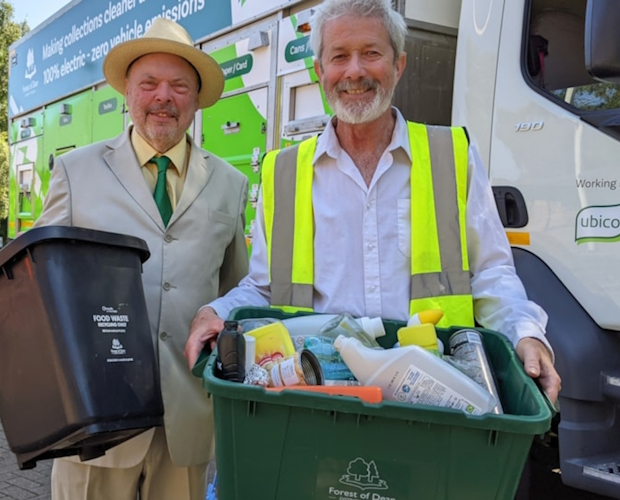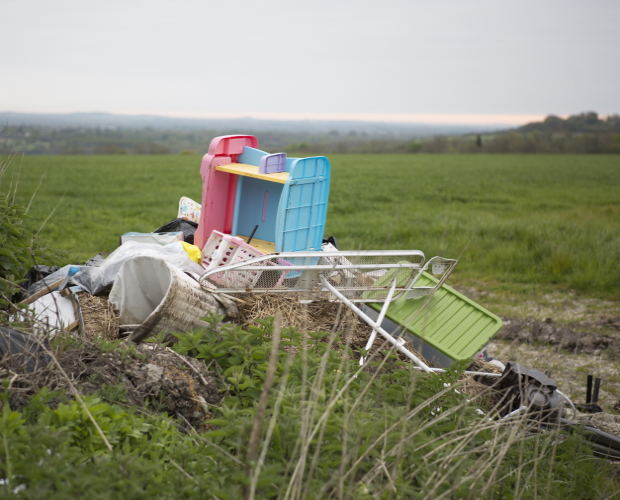T: 01822 851370 E: admin@sparse.gov.uk
RSN Voices Serious Concerns Over ‘Fairness’ Of Settlement
Read here...
The addition of two new fully electric recycling trucks to the Forest of Dean District Council’s waste fleet could lead the way for more local authorities to adopt battery power to make cleaner and greener kerbside collections in the future....
The Rural Services Network has submitted an official response to the Department for Environment, Food and Rural Affairs (DEFRA) on the Consistency of Household and Business Recycling Consultation. RSN’s response incorporates comments from an array of its members with...
The Rural Services Network is keen to respond to the Government’s current consultation on Consistency in Household and Business Recycling in England. Whilst the RSN welcomes proposals to increase recycling we have particular concern with regards to the New Burdens...
Greenredeem is today calling for Defra to invest in convenient recycling solutions that create sustained behaviour change by appealing to people’s priorities, rather than focusing solely on rolling out a deposit return scheme (DRS) in the UK In a new...
Rural areas around the UK have seen a dramatic increase in fly-tipping over the last number of weeks, with many households seeing the lockdown period as an ideal time for a spring clean of homes and gardens The Countryside Alliance...
Local charities could receive £1 billion from the proceeds of a can and bottle deposit return scheme, according to research by the Campaign to Protect Rural England (CPRE) One in five people said that. when using a UK-wide deposit return...
Councillors from the rural North Yorkshire Council have published a report questioning how funding for rural and urban authorities will be divided by the Government’s Resources and Waste Strategy, as reported by LetsRecycle.com. The Government is currently consulting on measures...
The Local Government Association has rejected calls for a nationwide standardised recycling system saying that ‘no one size would work’. The charity Keep Britain Tidy (KBT) highlighted that there are currently 150 different local waste management systems, arguing it was...
Summary of Recycling Performance Recycling Performance Sept 2012...
NEWSLETTER
Sign up to receive all our latest news and updates.
HOT TOPICS
Amid reduced public spending, fair resource allocation across regions is crucial. Despite a population larger than Greater London, rural areas receive significantly less funding for essential services, even though delivering these services in rural areas is more expensive.
Economic growth is widely acknowledged as essential for national wealth and prosperity and is a priority for political parties. Rural economies, employing millions and home to a higher proportion of small businesses, have potential for growth if barriers are removed.
Rural residents face distinct healthcare challenges, including limited access to transport, longer distances to medical facilities, an aging demographic, housing inadequacies, digital connectivity gaps, and difficulties recruiting health and care workers.
Rural communities are grappling with a severe affordable housing crisis, marked by high house prices, a lack of affordable housing, elevated living costs, and lower incomes, threatening their sustainability and vitality.
Transport is vital for the quality of life and economic health of rural areas, yet it faces challenges such as infrequent public bus services and less Government funding compared to urban regions.
Rural areas, encompassing a substantial portion of England's population and land, play a pivotal role in combating climate change and achieving the net zero target.
In an increasingly digital world, the lack of robust digital infrastructure in rural areas severely limits access to crucial services and stifles economic growth.
A future-focused vision for rural communities involves not just building the right homes in the right places but also ensuring thriving, sustainable communities.
SIGN UP TO OUR NEWSLETTER
Sign up to our newsletter to receive all the latest news and updates.







